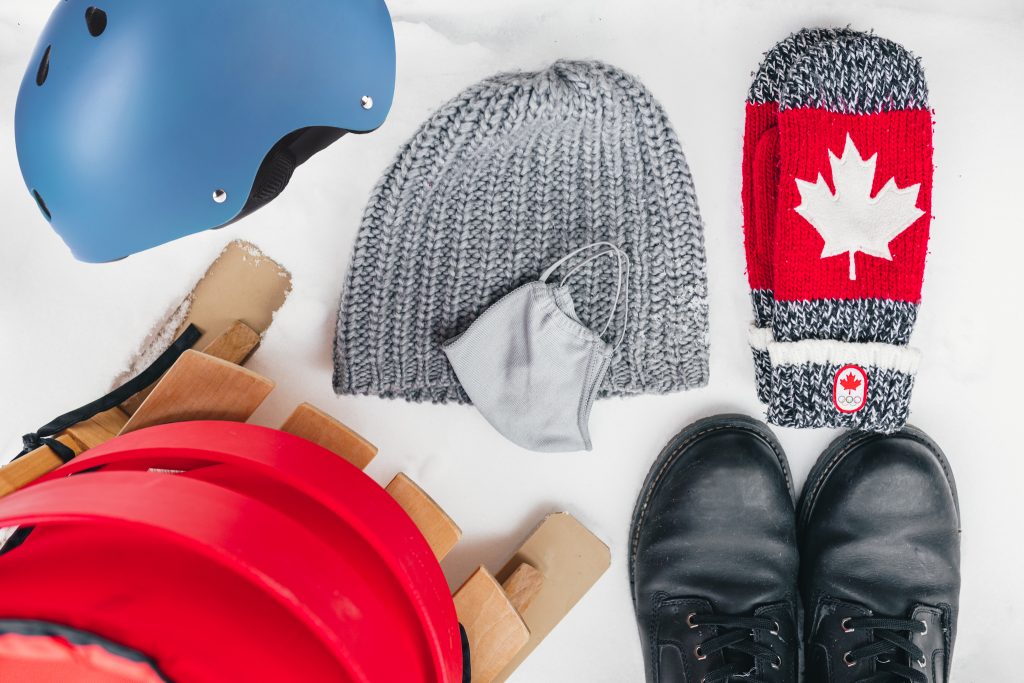
With the upcoming snowstorm, remember snow safety and heart health tips
HAMILTON, ON – With the upcoming storm expected to drop a lot of snow on the Hamilton region in the coming days, and with a PA day scheduled for both Hamilton school boards on Friday, there’s no better time to brush up on snow safety.
Snow safety for children and young-at-heart
Over the past few winter seasons, Hamilton Health Sciences’ McMaster Children’s Hospital (MCH) saw an increase in toboggan injuries.
“Although we haven’t yet seen a large increase in snow-related injuries come through our emergency department this season, we also haven’t seen a lot of snow,” says Dr. April Kam, emergency department (ED) physician at MCH and member of the Canadian Paediatric Society Injury Prevention Committee as the Pediatric Emergency Medicine representative. “With a lot of snow on the radar for this week and a day off for Hamilton children on Friday, we may unfortunately see that number tick up.”
Injuries could include concussions, fractures, dislocations, deep cuts through snowsuits, and damage to internal organs. With an increase patients at the MCH ED for influenza and viruses, the hospital team strongly encourages everyone to stay as safe as possible and follow safe tobogganing practices:
- Never sled on or near roadways
- Look for shallow slopes that are free of trees, fences or any other obstacles
- Avoid sledding on crowded slopes
- Always wear a ski or hockey helmet while sledding
- Never use a sled with sharp or jagged edges
- Handholds should be secure
- Always sit up or kneel on a sled – lying down can increase the risk of injury to the head, spine and stomach
- Sleds that are lifted up onto skis (i.e.., GT Racers) are not recommended because they can reach dangerous speeds
“Following these guidelines should help to avoid injury and a trip to the emergency department,” says Dr. Christopher Sulowski, Chief of the Pediatric Emergency Department at MCH.
Heart and snow-related precautions
It’s likely that community members will need to dig themselves out after the upcoming snow storm and this means that hospitals may see an increase in the number of individuals experiencing serious heart attacks.
“Statistically, we see a rise in heart attacks and heart-related deaths after significant snowfalls,” says Dr. Craig Ainsworth, Cardiology and Chief of Critical Care at Hamilton Health Sciences’ Hamilton General Hospital (HGH). “Repeatedly lifting heavy snow causes your heart rate to increase and blood pressure to rise considerably. For some people, especially those with certain risk factors, this can lead to a heart attack.”
Those with known heart disease, people who are sedentary, and those middle-aged or older are at higher risk. Ainsworth advises people at risk to ask a friend or neighbour for help, use a smaller shovel to lighten the load or, if possible, invest in a snow blower.
If you must shovel, be mindful of heart attack warning signs, which can vary significantly from person to person. Some people may experience pain in their neck and shoulder, while others become nauseous and light-headed.
Wide-ranging symptoms can include:
- Chest discomfort such as pressure, squeezing, fullness, pain, burning or heaviness
- Upper body discomfort in the neck, jaw, shoulder, arms or back
- Tingling or numbness
- Nausea and vomiting
- Dizziness
- Sweating
- Shortness of breath
- Feeling of the heart pounding
- Indigestion
- Feeling faint or anxious
Follow these steps if you or someone nearby has symptoms:
- Call 9-1-1
- Stop all activity and sit or lay down
- If you have nitroglycerin, take your prescribed dose
- Take Aspirin. Chew and swallow one 325 mg or two 81 mg tablets
- Rest and wait for help to arrive
For additional snow shoveling safety tips, please visit https://www.hamiltonhealthsciences.ca/share/snow-shoveling/.
– 30 –
